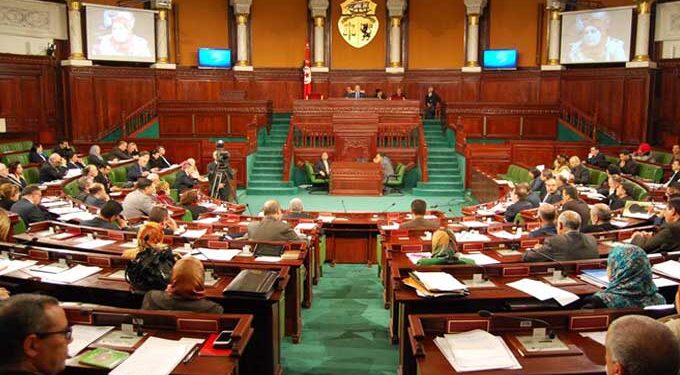The Assembly of People’s Representatives will begin, on Wednesday, July 2, the examination of a bill aimed at revising the decree-law n ° 54 relating to the fight against offenses linked to information and communication systems. This text, strongly criticized by media and civil society, is the subject of an examination by the Commission of General Legislation.
In a statement to the TAP agency, Yassine Kourrari, president of the said commission, said that the first session will be devoted to the hearing of the body behind this legislative initiative. A calendar of hearings will then be arrested in consultation with the members of the committee.
Kourrari assured that the Commission will work to send its report to the parliament office as soon as possible. He did not exclude the continuation of the work during the parliamentary holidays, in accordance with the internal regulations, if the deposit of the text does not intervene before the end of the current session.
The President of the Commission also indicated that the assembly’s office will be recipient, before the next parliamentary session, of all reports relating to the revision of the decree-law 54, as well as those linked to the other texts being examined.
The proposal to revise the decree-law n ° 54 had been filed for the first time on February 20, 2024, without being sent to the competent commissions. Faced with this blockage, sixty deputies relaunched the process last January, requesting an emergency examination of the text.
This decree-law, promulgated in 2022, has been at the heart of a lively controversy in recent months. The National Union of Tunisian Journalists (SNJT), supported by several NGOs and actors in civil society, demands its repeal, denounced the legal proceedings engaged against journalists under its provisions.
The SNJT militates so that the cases linked to the exercise of the profession are dealt with exclusively on the basis of the decree-law 115, guaranteeing press freedom. During its ordinary general assembly of February 23, 2025, the union adopted a motion calling for the liberation of imprisoned journalists and the cessation of prosecution against those pursued under the decree-law 54.
A turning point intervened on February 3, when the Court of Cassation of Tunis canceled the dismissal of the lawyer and columnist Sonia Dahmani to the criminal chamber, believing that the provisions of the decree-law 54 do not apply to the media. This decision has strengthened the appels in favor of a legal clarification and a revision of this controversial text.








